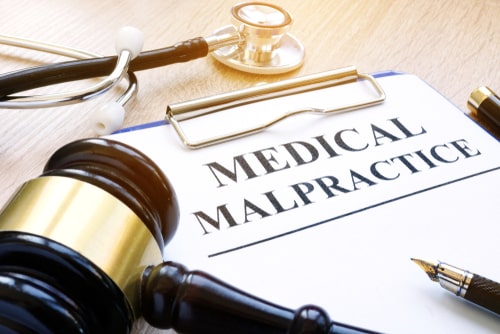Medical gaslighting is a pervasive and concerning phenomenon that occurs within healthcare settings, where patients’ concerns, symptoms, or experiences are dismissed, invalidated, or downplayed by medical professionals. The term “gaslighting” originated from a play and subsequent films in which a character manipulates another into doubting their own reality.
In the medical context, gaslighting takes on a unique form. It involves undermining a patient’s perception of their health, often leading to delayed diagnoses, inadequate treatment, and profound psychological distress. As a Virginia Beach medical malpractice lawyer can explain, although it is not considered malpractice, medical gaslighting can quickly lead to medical malpractice if it harms a patient.
Who Is Most at Risk of Experiencing Medical Gaslighting?
Patients experiencing medical gaslighting often find themselves on a frustrating and arduous journey to obtain an accurate diagnosis. Their concerns may be brushed aside, attributed to psychological factors, or dismissed as exaggerations. This dismissal can lead to a prolonged period of suffering as underlying health issues go unaddressed. In some cases, serious conditions may progress to advanced stages, negatively impacting the overall prognosis.
Various factors contribute to the occurrence of medical gaslighting, including gender biases, racial disparities, and preconceived notions about mental health. Research suggests that women may be more likely to experience medical gaslighting, with their symptoms sometimes being attributed to emotional factors rather than considered on their own merits.
For example, one study found that when men and women have the same symptoms of heart disease, doctors were significantly less certain of a diagnosis in women patients, and women were twice as likely as men to have their symptoms attributed to a mental health condition. Other research demonstrated that women with heart disease were treated less aggressively and weren’t as well represented in clinical trials.
Another study found that it took doctors longer to diagnose a number of different kinds of cancers in women than it did in men. A third study found that women who show up at an emergency room with abdominal pain were less likely than men with the same issue to receive pain medication and if they did receive it, they waited longer for the medication than male patients did.
Signs of Medical Gaslighting
Recognizing signs of medical gaslighting is crucial for patients to advocate for their health and seek the care they need. Here are some common indicators that an individual may be experiencing medical gaslighting:
- Dismissal of symptoms
- Being told the symptoms are a result of psychological factors (i.e., depression, anxiety, etc.)
- Failure of physician to order tests or schedule follow-up appointments
- Inconsistent explanation of the causes of the symptoms
- Minimization of what the patient is experiencing
- Being labeled as “overly concerned” or “difficult” by treating medical professionals
- The doctor continually ignores or dismisses the patient’s medical history
When Does Medical Gaslighting Become Medical Malpractice?
Medical gaslighting may be considered malpractice when it involves the violation of the standard of care expected from healthcare professionals. Malpractice occurs when a medical practitioner fails to adhere to established standards and their actions or negligence result in harm to the patient. While medical gaslighting may not always be explicitly defined in legal terms, it can contribute to a broader context of malpractice under certain circumstances. Here are some situations where medical gaslighting may be deemed malpractice:
A common way medical gaslighting can lead to malpractice is if the patient receives a delayed or false diagnosis as a result. Misdiagnosis is a type of medical malpractice that occurs when a healthcare professional fails to diagnose a patient’s condition within a reasonable amount of time. This act of negligence ultimately leaves the patient without proper treatment, and they suffer harm.
If a healthcare provider dismisses or trivializes a patient’s symptoms without conducting thorough evaluations or ordering necessary tests, leading to a delayed or incorrect diagnosis, it may be considered malpractice.
Contact Our Virginia Beach Personal Injury Law Firm Today
If you believe you are a victim of medical gaslighting that ultimately led to serious injuries and malpractice, a Virginia medical malpractice lawyer from our firm can evaluate your case and determine what type of damages you may be entitled to. Contact Shapiro, Washburn & Sharp to schedule a free and confidential consultation and find out what legal options you may have.
Our firm has built a solid reputation for successfully obtaining medical malpractice settlements and verdicts for our clients who suffer harm, like the $1.6 million jury verdict for one client who suffered a seizure and traumatic brain injury after a doctor failed to diagnose a potentially life-threatening condition.
Our personal injury firm also has satellite offices in Hampton, Norfolk, and Portsmouth.
